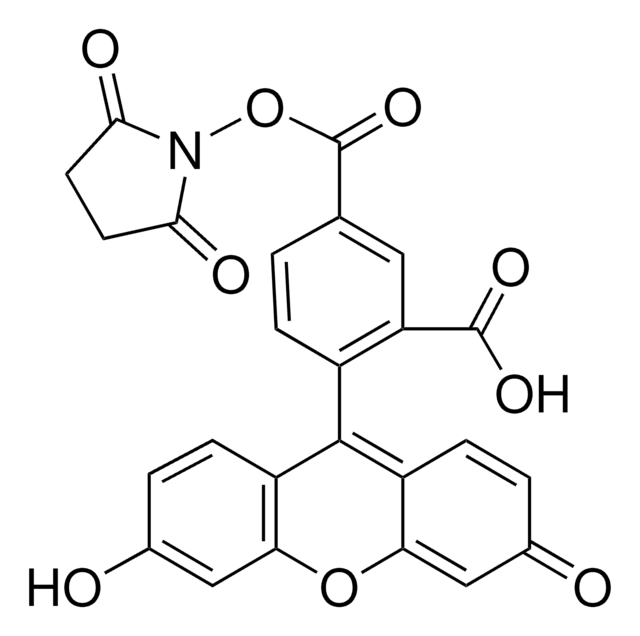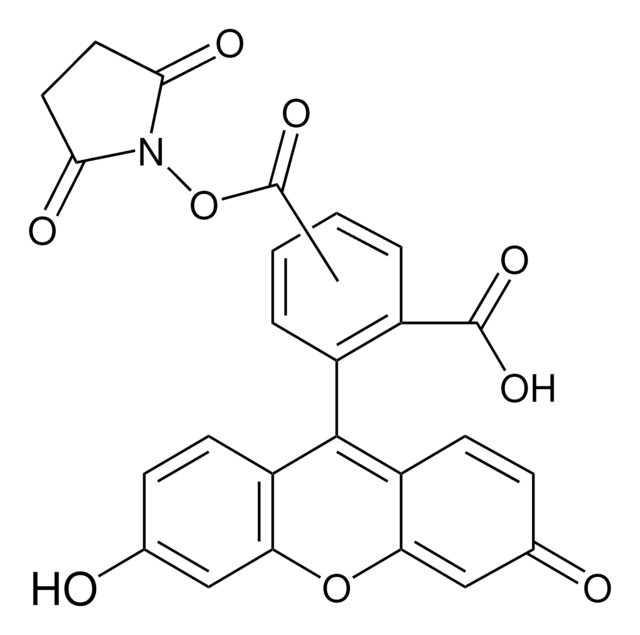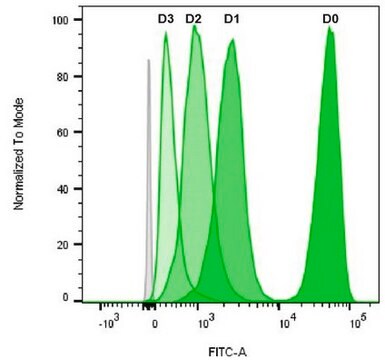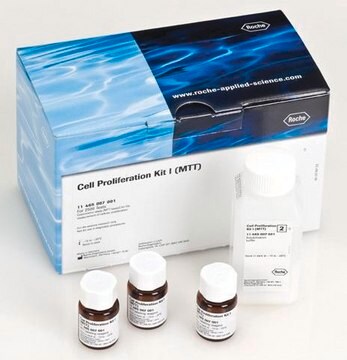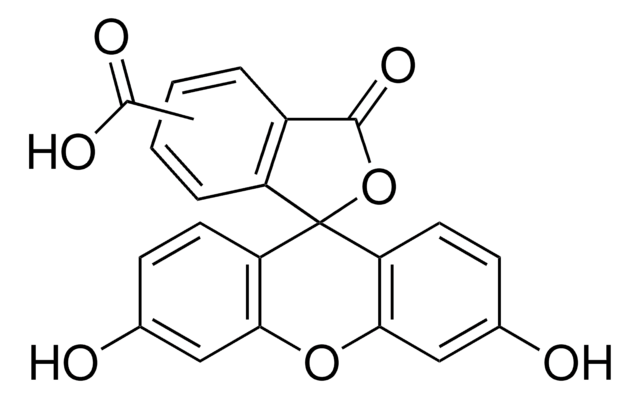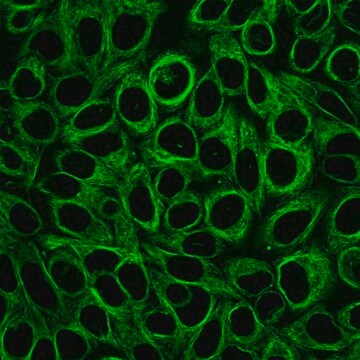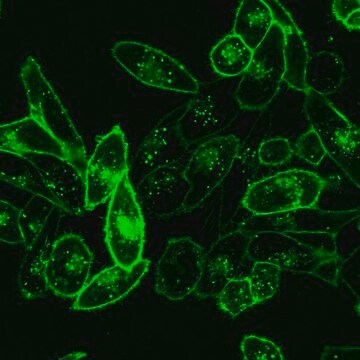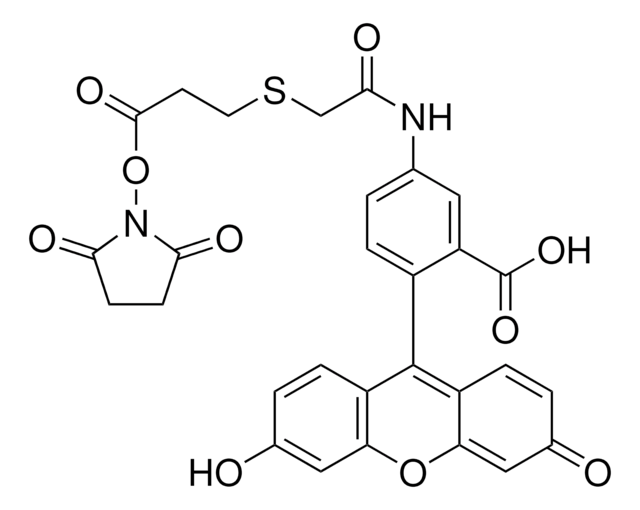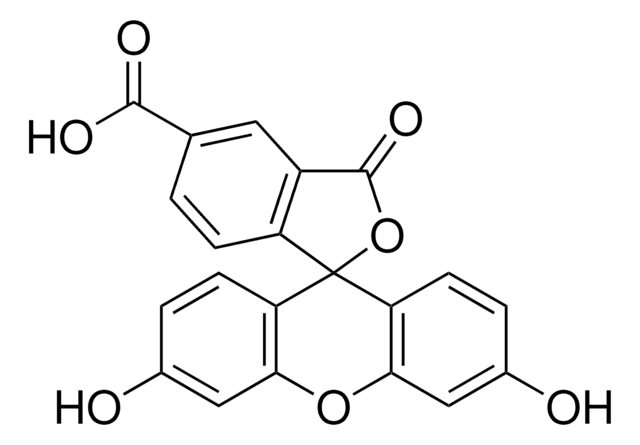21888
5(6)-Carboxyfluorescein diacetate N-succinimidyl ester
BioReagent, suitable for fluorescence, ≥90% (HPLC)
Synonym(s):
CFSE
About This Item
Recommended Products
product line
BioReagent
Quality Level
Assay
≥90% (HPLC)
form
solid
mp
152-154 °C (lit.)
solubility
DMF: soluble
DMSO: soluble
fluorescence
λex 492 nm; λem 517 nm in 0.1 M Tris pH 8.0 (esterase)
suitability
suitable for fluorescence
storage temp.
−20°C
SMILES string
CC(=O)Oc1ccc2c(Oc3cc(OC(C)=O)ccc3C24OC(=O)c5cc(ccc45)C(=O)ON6C(=O)CCC6=O)c1.CC(=O)Oc7ccc8c(Oc9cc(OC(C)=O)ccc9C8%10OC(=O)c%11ccc(cc%10%11)C(=O)ON%12C(=O)CCC%12=O)c7
InChI
1S/2C29H19NO11/c1-14(31)37-17-4-7-21-23(12-17)39-24-13-18(38-15(2)32)5-8-22(24)29(21)20-6-3-16(11-19(20)28(36)40-29)27(35)41-30-25(33)9-10-26(30)34;1-14(31)37-17-4-7-20-23(12-17)39-24-13-18(38-15(2)32)5-8-21(24)29(20)22-11-16(3-6-19(22)28(36)40-29)27(35)41-30-25(33)9-10-26(30)34/h2*3-8,11-13H,9-10H2,1-2H3
InChI key
LZFDYQHOQDFMOA-UHFFFAOYSA-N
Related Categories
General description
Application
- to label cells for flow cytometry
- in lymphocyte proliferation assay
- to determine the intracellular or intra-organellar pH in chloroplasts
- to label Leishmania amazonensis and Leishmania major
Biochem/physiol Actions
Packaging
related product
Storage Class Code
11 - Combustible Solids
WGK
WGK 3
Flash Point(F)
Not applicable
Flash Point(C)
Not applicable
Personal Protective Equipment
Certificates of Analysis (COA)
Search for Certificates of Analysis (COA) by entering the products Lot/Batch Number. Lot and Batch Numbers can be found on a product’s label following the words ‘Lot’ or ‘Batch’.
Already Own This Product?
Find documentation for the products that you have recently purchased in the Document Library.
Customers Also Viewed
Articles
Cell based assays for cell proliferation (BrdU, MTT, WST1), cell viability and cytotoxicity experiments for applications in cancer, neuroscience and stem cell research.
Our team of scientists has experience in all areas of research including Life Science, Material Science, Chemical Synthesis, Chromatography, Analytical and many others.
Contact Technical Service